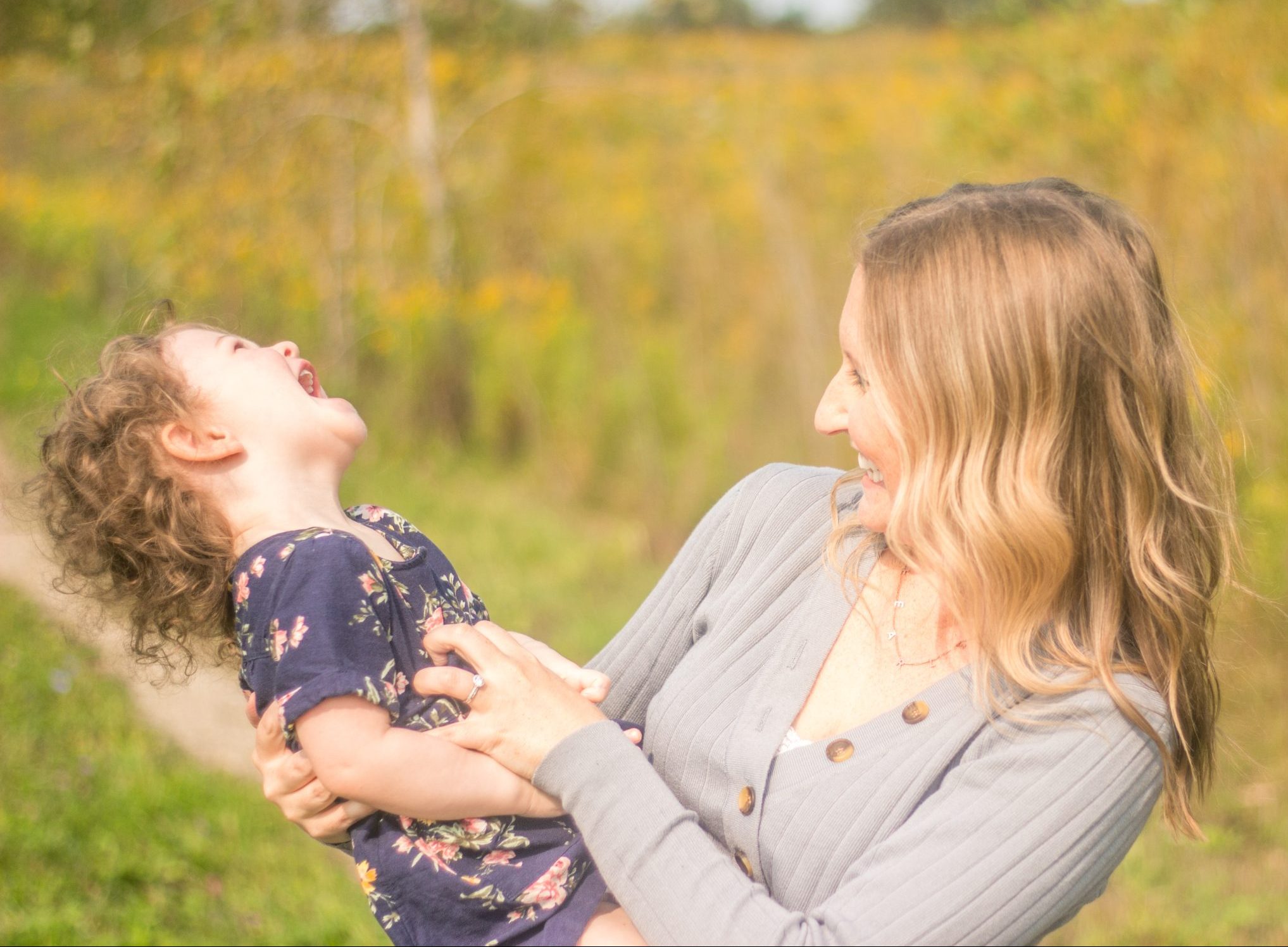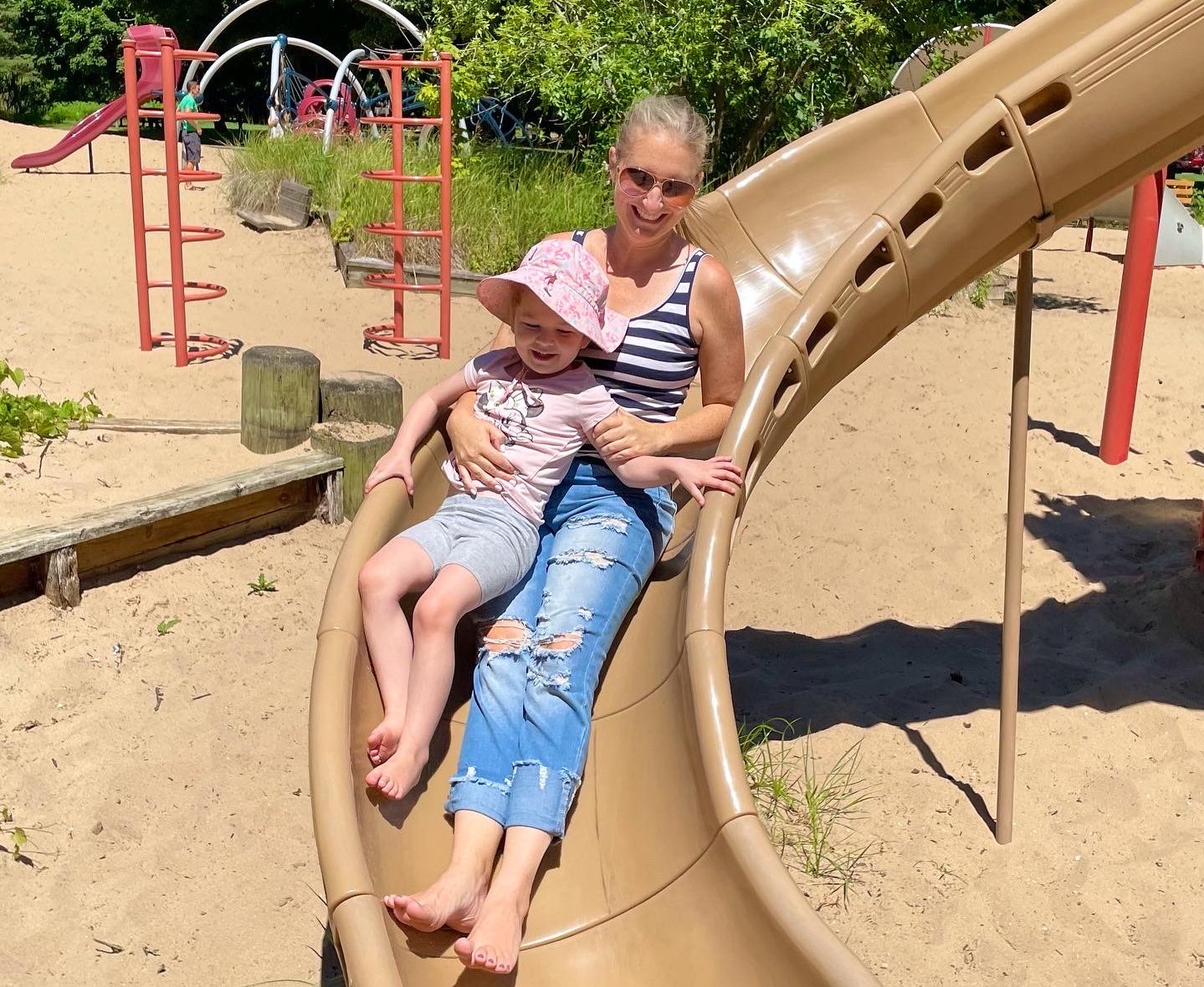I am four and a half years into motherhood and I am still trying to figure out who I am as a mom. I’ve only just begun to fully grasp who I am as a person. What I mean by that is I have finally started hearing the voice inside louder all the other voices out there. Which got me thinking: Whose voice plays the loudest in the minds of girls and women as we walk through the world? The voice of our mother or mother figure? The voices of our girlfriends? The voice of society and culture? If you’re attempting to raise a daughter who can drown out the noise of the norm, the notion of what the world tells our daughters to be, say, and look like can be scary.
While opining on the topic of trying to neutralize negative messaging to girls, a good friend gave me a great reminder. She said, “Remember, it’s going to be your voice she hears in your mind as she grows.” When she said this I was immediately relieved. I relaxed and thought to myself, “She’s right, I do hear my mother’s voice in my head, and I am 37.” My next reaction was, “Oh God. I still hear my mother’s voice in my head, and I am 37!”

The Voice of Outdated Ideals
Let me clarify. Still hearing my mother’s careful, buttoned-up, always-be-early-or-it’s-insulting messaging has, in general, got me to this place in my life – and I love this place. However, in my opinion, there are some of ideals that were instilled in me and do not stand up to the test of time:
- Give everyone goodbye hugs before leaving a family gathering
- Sit like a lady
- The world is the way it is, there’s not much we can change about it
- Be polite and kind to your parents, not necessarily truthful
The more examples of these out-grown messages I jot down, the more I realize they may not be my mother’s messaging at all, rather her generation’s messaging. When we look back in time at generation after generation of women, I think with each passing group, we’ve been able to increase our tolerance for bucking the “way it’s always been.” I want my daughter to see and hear me say, “Not Me,” and, “Not Her,” to the expectations put upon women from generations past.
Anyone who’s been around children understands their capacity to mock, copy, and parrot what the adults around them say, for better or for worse. It’s a necessity for babies and toddlers to hear our voices. They haven’t yet cultivated their own judgment, their own sense of danger and safety. Our voices need to become the base for theirs. As they grow, the hope is that we help them cultivate their own voice, but also the instinct to listen to it, above all of the other voices they hear, even ours eventually.
Privilege and Pressure
Having the responsibility of messaging to our daughters, or young women in general, means asking ourselves what legacy we want to leave them. This statement comes with a lot of privilege and a lot of pressure. I feel the awesomeness of knowing my voice will help shape the voice my daughter hears in her head, but I also feel the weight of that.
Some of that awesomeness includes:
- The ability to counteract unhealthy messaging from the outside…sometimes even from others we love.
- We will help her cultivate her ability to listen to her own instincts.
- What we do and say will be the basis for her voice.
Some of that weight includes:
- Our unhealthy self-talk can easily become theirs.
- The positive messaging must be “louder” and more consistent than the negative, in order for it to be impactful long-term.
- What we do and say will be the basis for her voice. I know…it’s both awesome and heavy.
Intention and Apology
I am the least proud of using a voice and a message that flowed from me out of habit with my daughter. I was saying what I’ve always heard, but not what I really wanted to say. The intention and patience it takes to always speak and act with the end goal in mind can feel overwhelming. It feels like we always have to be “on.”
I don’t think it has to be that extreme, however. I’ve offered myself the grace, only recently, to get it wrong sometimes. When I know that I have messaged to my daughter in a way that doesn’t align with my values, I get honest with her. I take a break for a moment and gather myself. I ask myself what I wish I would have heard from my mother’s generation when they didn’t get it right either.
The answer is simple – an apology. Learning early that our parents don’t get it right every time allows our kids to feel safer taking risks. I tell her I am sorry and that I want to clarify what I meant to say. That sometimes I don’t always hear my own voice clearly and that she won’t always either. This effort at vulnerability and this level of intention is what will separate this generation’s voice from those before us.

There is something that will differentiate my generation’s parenting legacy. It will be our willingness and ability to empower our children to use their own voices. To transition from saying, “Here’s what I’ve learned.” Instead, asking them, “What do you think?” Hopefully then, she will begin to trust her own feelings and problem solving abilities. Ideally then, the voice my daughter hears most clearly will be her own. It will be cultivated from her instincts and her experiences, with my carefully chosen messaging sprinkled in.
Full Circle
Let’s circle back to what brought us here to start with: my fear the messaging around my daughter will impact her more heavily than my own efforts to empower her. My friend’s advice was definitely meant to chill me out and help me. It wasn’t meant to make me panic every time the world tells my daughter something destructive or healthy. After all, her parents’ voices are the strongest and most consistent in her life, and we should trust that impact. This advice was successful, however it also reminded me of the great responsibility that comes with that. Some responsibilities bring anxiety, and this one can too if I am not careful. For me the best way to counteract anxiety is to remember I can only control so much and to focus on those things. So for now, I continue on the path of intention, empowerment and apologies…rinse and repeat.










